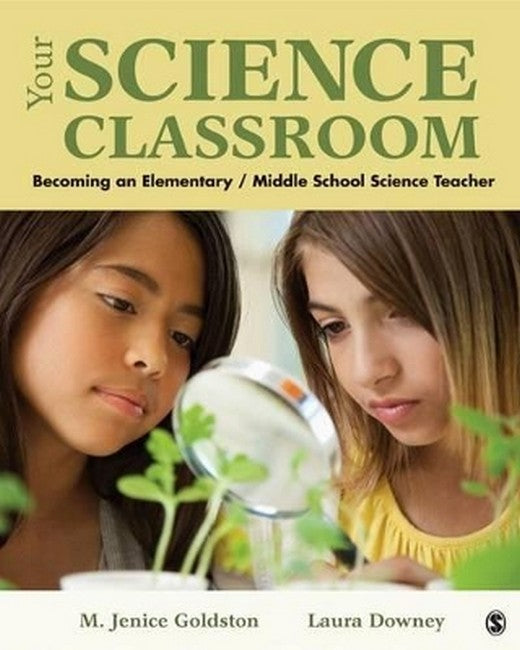M. Jenice "Dee" Goldston is Professor of K-12 Science Education in the Department of Curriculum and lnstruction at the University of Alabama. A former middle school teacher, she teaches elementary science methods at both the undergraduate and graduate levels while also supervising doctoral students. During her time at Kansas State University, she was a recipient of the Outstanding Undergraduate Educator at Kansas State University, Mortar Board's Outstanding University Educator, and the Kappa Delta Phi Outstanding Educator in the field. Most recently she received a Commendation from the Alabama State Board of Education for Leadership and Service to elementary science education. Dr. Goldston is active in many professional organizations including the Association of Science Teacher Education, National Association for Research in Science Teaching, American Educational Research Association, National Science Teachers Association, and a past president of the Council of Elementary Science International. Laura Downey is Executive Director of the Kansas Association for Conservation and Environmental Education, a statewide non-profit association. She is a former middle school math and science teacher as well as a former first grade teacher. While earning her PhD Curriculum and Instruction for Math, Science, and Technology at Kansas State University, Downey taught sections of the elementary science methods courses. Her ongoing involvement in the formal science education community include responsibilities as a board member and membership chair for the Council for Elementary Science International and frequent presentations for the National Science Teacher's Association's conference.
Request Academic Copy
Please copy the ISBN for submitting review copy form
Description
Preface NSES Teaching Standards Part I The Nature of Science 1. I Know What Science Is! It's an Experiment 2. Are you Scientifically Literate? Why We Teach Science Part II The Nature of the Learner 3. Children's Construction of Science 4. Children's Alternative Frameworks and Conceptual Change Part III The Nature of Science Teaching 5. Classroom Teaching Practices: Questioning and Inquiry 6. Inquiry Teaching Approaches and Science Process Skills 7. Inquiry Lesson Planning: 5E Instruction Model 8. Assessment or Evaluation: A Guide for Science Instruction Part IV The Nature of Diversity in Science Teaching and Learning 9. Learning Styles and Diverse Learners 10. Addressing Student Diversity: Science for All 11. Interdisciplinary Connections: Science Across the Curriculum Appendix A How Do I Write an Instructional Objective? Appendix B Safety in Your Science Classroom Appendix C Science Inquiry Learning Centers

